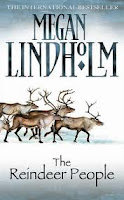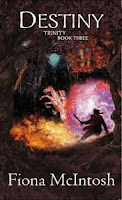Tim Flannery is one of Australia’s leading thinkers and writers. An
internationally acclaimed scientist, explorer and conservationist, he
has published more than 130 peer-reviewed scientific papers. His books
include the landmark works The Future Eaters and The Weather Makers. He was kind enough to let us interview him and ask him some questions about his books and work.
What drew you to study and love ecological history and evolution?
I grew up on the outskirts of Melbourne, and when I was young wildlife was abundant. I hated the way it disappeared as the suburb grew. And I was very fortunate to live near a fossil deposit. It was on the edge of Port Phillip Bay, and by diving you could find the remains of whales, sharks and penguins that had swum in an ancestral bay 7 million years ago. That really turned me on to evolution.
How do you think we can change as a species to reduce our carbon footprint?
I
am confident that we can reduce our carbon footprint, and do so
quickly. Australia's clean energy legislation gives the nation the means
to honour its pledge of reducing its emissions by 5% by 2020. This
doesn't sound like a lot, but it will be the first time in history that
emissions have been intentionally reduced. Greater reductions will
follow.
What is the world’s most functioning ecosystem?
That
is a tricky question. I'd guess the Antarctic, but even there fishing
is damaging its seas. And they are extremely fragile.
In the ‘Weather Makers’ you talk about climate change, can you give a brief rundown of what makes climate change happen?
Basically, human pollution in the form of greenhouse gases is trapping heat close to the surface of the Earth.
What do you enjoy the most when you immerse yourself in a so called ‘primitive’ culture?
I
love seeing the world through somebody else's eyes, so when someone in a
village makes an observation about the world that makes me think, I
consider it a great gift.
In ‘Among the Islands’ you went in
search of new mammals to document. How many species do you think is
still out there we haven’t managed to find yet? Also there are a lot of
people who think that we have basically found all there is to find –
what do you say to that?
We've barely begun to explore the remote
regions of our world. We've been to the Moon more often than to the
depths of the sea. In elanesia alone, I think that dozens of mammals
remain to be discovered. I know where at least half a dozen are - just
awaiting an adventurous biologist.
If you could have a cuppa with anyone from history, who would it be and why?
The first person to see a Diprotodon. I'd love to ask them about what Australia looked like when people first arrived.
In the ‘Future Eaters’ we find out how the Aborigines, Maoris and other
native peoples changed the world, then how the Europeans changed it
again. How do you think we will change it for future generations?
That is THE great question. And we answer it with our actions every day. Do we conserve and enrich, or destroy?
Do you think there are new unknown Dinosaur bones to be found in Australia?
There are many.
How unique is Australia’s flora and fauna to the rest of the world? How
did we get such strange and deadly creatures to evolve only here?
Take
our snakes, for example. Why are they so venomous? Our spoils are poor,
so prey is thin on the ground. When you encounter some, you can't risk
it getting away.
What is next for Tim Flannery? What new adventures will you embark on?
I'm not sure. There's a lot of work to be done, so adventures might have to wait a while yet.
If you would like to find out more on any of Tim Flannery's books then head over to his website here.
As a field biologist Tim has discovered and named more than thirty new
species of mammals (including two tree-kangaroos) and at 34 he was
awarded the Edgeworth David Medal for outstanding research in zoology.
His pioneering work in New Guinea prompted David Attenborough to put him
in the league of the world’s great explorers, and Redmond O’Hanlon to
remark, “He’s discovered more new species than Charles Darwin.”
























